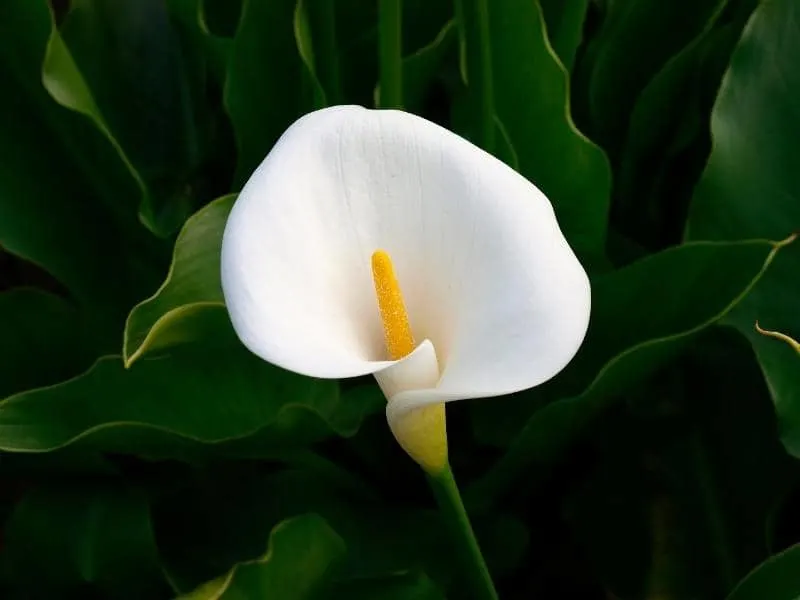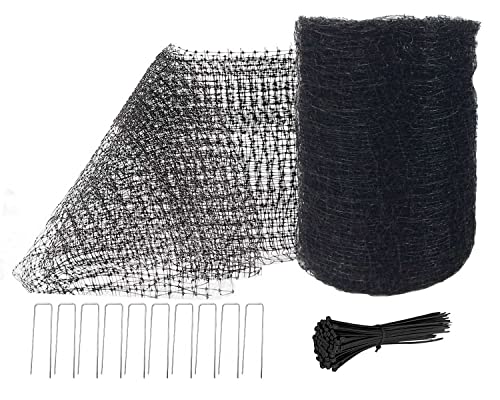A lily that is truly not even a lily. However,it is still a step ahead when it comes to elegance. We are talking about calla lilies. From weddings to funerals, they are a hit in every spot. Callas need a higher amount of water and fertilizer.
These beautiful lilies are known to be a native to Africa. Calla lilies are usually seen to grow near lakes and swamps. Where no plant is considered truly deer-proof, do deer eat calla lilies? To figure out the answers, be with us till the end.
Do deer eat calla lilies?
Deers do not eat calla lilies. Calla lilies are one of those plants which deers do not find appetizing. However, we all know how adaptive deers can be. They would eat almost anything and everything, if there’s a food scarcity. Exceptionally, calla lilies are considered to be completely deer-proof.

Are any plants even off the deer menu? Well, the good news is a few are. However, deers will give a sample taste to every plant whether they like it or not.
Additionally, they are mostly known not to eat calla lilies. These lilies are funnel-shaped, have a polled covered spadix and usually white in color. They usually grow during the summer days and can grow up to 3-feet tall.
Therefore, you may notice deers snacking on your calla lilies.
Calla lily bulbs:
These lilies are sophisticated, rich in color and easy to grow. Deers usually do not enjoy chomping on calla lily bulbs. They will most likely avoid feeding on the bulbs.
However, they might give it a taste. Additionally, the bulbs wouldn’t be a part of their regular diet.
Calla lily flowers:
Lilies and other hostas are often caught grazing by the deers. You can grow the lilies in hardiness zones three to nine. Unfortunately, not even that can save the lilies.
The deers are most likely to ruin your garden and you’d have to share your beautiful blooms with them. Deers enjoy munching on lilies and hostas. However, calla lily flowers are not enjoyed by deers.
They will avoid grazing these flowers if they exist in your garden.
Moreover, lilies are classified as perennials and usually found in the form of bulbs. These plants fully thrive when kept fully or partially in sunlight.
Calla lily plants and leaves:
Lilies are mostly invaded by deers when they are kept on the border area of your garden. Most of us are used to doing this, as these plants are low maintenance. However, planting the lilies in the inner corner can help you protect them.
Additionally, calla lily plants and leaves aren’t consumed by deers.
Are calla lilies deer resistant?
Calla lilies are known to be deer-proof. Although lilies themselves aren’t deer resistant. Calla lilies are. Deers for some reason do not enjoy munching on calla lilies.
Even though calla lilies are at the end of the food chart for the deers and rabbits, there are other animals that would love to graze your lilies.
Squirrels, voles and chipmunks, will not give a second thought before they start eating your calla lilies. However, that is not the case when it comes to deers. They will usually avoid the consumption of calla lilies. Therefore, they are indeed deer-resistant.
Do deer like to eat calla lilies?
Deers do not like to eat calla lilies. These lilies contain toxins that can cause health risks. However, it does not mean deers will not eat them if they are really hungry.
In case, the deers are starving and they do not find a good source of food, they might graze on calla lilies. However, if they are able to find enough food sources, they wouldn’t.
They clearly do not like calla lilies. No animal likes to eat food that contains toxins.
Are calla lilies toxic to deer?
Calla lilies can be toxic to deer. Calla lilies contain toxins that may create health issues in a deer. However, deers are known to graze over lilies. True lilies are one of the most favorite snacks for deers.
They wouldn’t give a second thought before munching on your lily plants. Additionally, deers are known to avoid plants and herbs that smell too strong.
Moreover, when it comes to calla lilies, they contain toxins, which is why they are usually avoided by deers. Therefore, we can consider calla lilies to be toxic to deers.
What part of calla lily is poisonous?
Particularly the roots of the calla lily is considered poisonous. Calla lilies are hugely used as ornamental plants. However, the plant is toxic in nature. These flowers contain a toxin known as insoluble calcium oxalates.
When consumed they can penetrate the soft tissues of the mouth, throat and GI tract of any animal. This can ultimately lead to causing pain and irritation.
Apart from that, the roots of the plants are considered highly toxic. Which is the basic reason behind deers and rabbits avoiding eating calla lilies.
How do I keep deer from eating my calla lilies?
Deers can decimate decorative trees in no time. They are great fans of lilies. Therefore, if you have lilies in your backyard or garden, they are most likely to get the attention of the deers.
Apart from that, deers also carry ticks which can cause Lyme disease in both dogs and humans.
Here are a few things you can do to keep deer from eating your calla lilies:
Removing deer-attractants:
You’d want to start with removing deer-attractants. If you own a vegetable garden, it is recommended to harvest the fruits and vegetables as soon as they are ready.
This will prevent the deers from seeing or smelling that resembles their food source.
Keeping deer-attractive plants near house:
The next thing you can do is keep the deer- attractive plants near your house. You’d wanna do this during the spring. During spring, mother deers are busy providing food to their fawns.
This may result in the deers ruining your backyard or garden. Try to grow trees like peaches, and strawberries close to your home. Even hungry deers will avoid coming near human dwellings.
Maintaining your landscape:
This is important as you don’t want deers to get into your garden. If your garden is not clean then deers may find it suitable to stay at night and rest during the day.
Additionally, you’d want to trim the heavily planted areas. Those are considered as the hiding places for deers and other predators.
So, removing the densely planned trees would discourage the deers from roaming around your garden.
Adding fences:
You can add fences. Not all fences will be able to protect your plants as deers can jump. However, you can use taller fences than the average ones.
Also, for additional inconvenience you can add rocks and other levels. And place the potted plants on your porch. Deers won’t enjoy climbing the stairs and getting near your house.

Adding deer-repellent plants:
Deers use their sense of smell to identify everything. Therefore, try planting trees that they wouldn’t find appetizing with the smell of it.
They dislike the smell of anything that smells too strong, like lavender, basil etc. You can also add shrubs that are avoided by deers.
However, like humans deers can have different preferences. Do your research before planting anything. You could accidentally plant something that deers absolutely love grazing.
Plants that come with thorny bodies are great. For example, roses are a good choice for this option.
Applying deer repellent:
You can also use deer-repellents, as they can be used to obstruct the smelling and tasting sense of a deer. Most of these repellents taste a lot like garlic, which forces the deers to get off your garden.

Final thoughts
Whereas, no plants are truly deer-resistant, calla lilies are. Deers do not eat calla lilies. Calla lilies are toxic to animals. When consumed it can cause injuries to the soft tissues around mouth and throat. The roots of the plant are poisonous. This is why calla lilies are most avoided by deers.
